A recent UN report confirmed that Turkey has supplied the Sudanese army with new and modern weapons, renewing concerns about violations of the international arms embargo and weak export controls applied by Ankara.
The report, issued by a UN expert panel, stated that weapons manufactured by Turkish companies are fueling the conflict in Sudan, ongoing since April 2023.
Presented to the UN Security Council in July, the report highlighted several instances where Turkish-made weapons were recovered from armed groups and militias. Among the seized weapons were BRG Savunma BRG-55 rifles and HUSAN Arms MKA 556 rifles, both manufactured in Turkey and found with the Sudanese army and affiliated groups.
Rifles produced by UTAS Defense, another Turkish brand, were also spotted in the hands of armed actors despite the embargo.
The report hinted at the Ankara government’s approval to supply weapons to the army and militias, based on Turkish law which requires prior approval from the Turkish Armed Forces, the Presidency of Defense Industries, and the Ministry of Foreign Affairs for exporting defense equipment abroad, whether by private or state-owned companies.
The appearance of Turkish-made rifles in Africa, according to the UN report, indicates that while export licenses were granted to sell them to third countries, shipments were later diverted to conflict zones.
The UN report highlighted gaps in Turkey’s export monitoring, stressing the risk of diversion to sanctioned areas. UN investigators confirmed that the presence of newly manufactured Turkish rifles alongside other foreign weapons reveals shortcomings in the international enforcement of the embargo on Sudan.
One company identified in the report is BRG Savunma, officially registered as Burgu Savunma Teknolojileri ve Havacılık A.Ş. in Istanbul, owned by businessman Fatih Dogru. The manufacturer was established in March 2021 under the name Burgu Metal Sanayi ve Ticaret Ltd. Şti.
BRG Savunma, which produces the BRG-55 rifles found in Sudan, was twice banned from participating in Turkish Armed Forces contract tenders—once for six months in May and again for two years in June—due to contract violations.
Another company, HUSAN Arms, manufactures the MKA 556 rifles identified by UN investigators. The company is based in Konya province, Turkey, operating under the name Husan Metal Teknolojileri Sanayi ve Ticaret A.Ş.
The third Turkish company mentioned is UTAS Defense, officially registered as UTAS Savunma Sanayi ve Ticaret, headquartered in Antalya province, managed by Sezgin Koysurin and Mehmet Serkan Koysurin. It produces 5.56×45 mm caliber rifles, some of which were found in the hands of militias affiliated with the Sudanese army.
The UN committee renewed its warning that the circulation of these weapons exacerbates violence in Sudan, ongoing for about three and a half years, with the army and affiliated militias implicated in serious human rights violations, forced displacement, and systematic attacks on civilians.
Turkey’s defense industry has rapidly expanded its exports across Africa and the Middle East in recent years, enhancing Ankara’s geopolitical influence. However, the discovery of Turkish-made weapons in South Sudan raises urgent questions about oversight, accountability, and compliance with the international arms embargo.
The UN committee urged Turkey, along with other countries whose weapons have been traced to Sudan, to strengthen end-user certificates and enforce stricter export controls to prevent diversion.
Relatedly, the report warned that South Sudan is also witnessing an increase in Turkish arms inflows, emphasizing that without decisive action, the South is at risk of further destabilization as imported weapons continue to fuel cycles of violence.
Turkish weapons were found in the hands of fighters in the ongoing conflict in South Sudan. The committee noted that many of the seized weapons are newly produced, ruling out the possibility that they came from old stockpiles.
It also suggested that these weapons likely entered South Sudan through illicit supply chains, strengthening non-state armed groups and undermining fragile peace agreements.



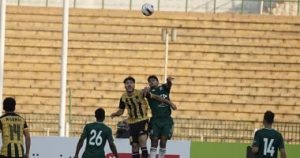
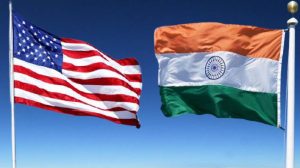
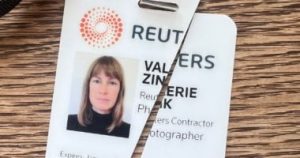

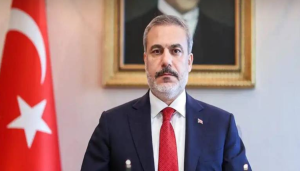
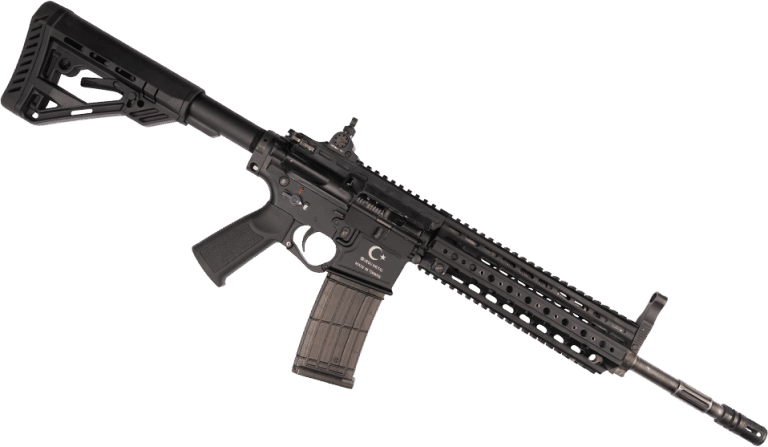




Recommended for you
Exhibition City Completes About 80% of Preparations for the Damascus International Fair Launch
Talib Al-Rifai Chronicles Kuwaiti Art Heritage in "Doukhi.. Tasaseem Al-Saba"
Unified Admission Applications Start Tuesday with 640 Students to be Accepted in Medicine
Egypt Post: We Have Over 10 Million Customers in Savings Accounts and Offer Daily, Monthly, and Annual Returns
His Highness Sheikh Isa bin Salman bin Hamad Al Khalifa Receives the United States Ambassador to the Kingdom of Bahrain
Al-Jaghbeer: The Industrial Sector Leads Economic Growth